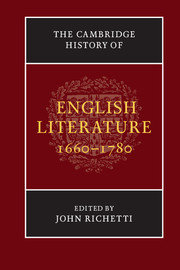Book contents
- Frontmatter
- Introduction
- PART I LITERARY PRODUCTION AND DISSEMINATION: CHANGING AUDIENCES AND EMERGING MEDIA
- PART II LITERARY GENRES: ADAPTATION AND REFORMATION
- PART III LITERATURE AND INTELLECTUAL LIFE: THE PRODUCTION AND TRANSMISSION OF CULTURE
- PART IV LITERATURE AND SOCIAL AND INSTITUTIONAL CHANGE
- PART V LITERARY GENRES: TRANSFORMATION AND NEW FORMS OF EXPRESSIVENESS
- PART VI CONCLUSION
- Chronology
- Bibliographies
- Index
Introduction
Published online by Cambridge University Press: 28 March 2008
- Frontmatter
- Introduction
- PART I LITERARY PRODUCTION AND DISSEMINATION: CHANGING AUDIENCES AND EMERGING MEDIA
- PART II LITERARY GENRES: ADAPTATION AND REFORMATION
- PART III LITERATURE AND INTELLECTUAL LIFE: THE PRODUCTION AND TRANSMISSION OF CULTURE
- PART IV LITERATURE AND SOCIAL AND INSTITUTIONAL CHANGE
- PART V LITERARY GENRES: TRANSFORMATION AND NEW FORMS OF EXPRESSIVENESS
- PART VI CONCLUSION
- Chronology
- Bibliographies
- Index
Summary
In these early years of the new century, there is an urgent need to rewrite the literary histories of Britain that are now nearly a hundred years old and showing their age for contemporary students and scholars. The last Cambridge Literary History of the period – volumes VIII to X of a twenty-volume set, The Cambridge History of English Literature – appeared between 1906 and 1917, at its end right in the thick of the Great War. Devoted mainly to essays on the great male writers of the period – for example, volume IX is subtitled ‘From Steele and Addison to Pope and Swift’ and volume X is called ‘The Age of Johnson’ – these volumes remain an impressive achievement, full of essential information and deep as well as gracefully worn learning that modern scholars might well envy and seek to emulate. The old Cambridge History of English Literature is still very useful and well worth reading. But there is a serenity in its essays by predominantly male Oxbridge dons that at the beginning of another new century we no longer possess; there is in those volumes an untroubled confidence in their enterprise and in the value of literary history that has been eroded if not destroyed by nearly a century of intellectual upheaval as well as by profound social and moral transformations in Anglo-American culture and in the world at large. Since that first Cambridge history appeared, literary studies have changed as radically as the political and social world we live in, and in the last forty years or so, since the early 1960s, there has been a disorienting succession of intellectual revolutions (the word is not too strong) whereby the notion that literature is a privileged artistic and cultural institution has been challenged by many critics.
- Type
- Chapter
- Information
- Publisher: Cambridge University PressPrint publication year: 2005
- 1
- Cited by

